NSW Bush Summit 2020: Australians look to bush to spearhead drought, fire recovery
Prime Minister Scott Morrison led a stellar line-up of politicians, entrepreneurs and regional leaders at the summit in Cooma to brainstorm a future driven from the bush. SEE HOW THE DAY UNFOLDED
Bush Summit
Don't miss out on the headlines from Bush Summit. Followed categories will be added to My News.
- $10m mental health boost for bush
- Country pubs’ critical role in crises
- Wool workers’ win is sheer bliss
- Bush boom towns where home prices halved
Australians are looking to the bush to spearhead the nation’s recovery from droughts, fires and COVID-19 pandemic, The Daily Telegraph’s Bush Summit heard on Friday.
Prime Minister Scott Morrison led a stellar line-up of politicians, entrepreneurs and regional leaders at the summit in Cooma in the Snowy Mountains to brainstorm a future driven from the bush.
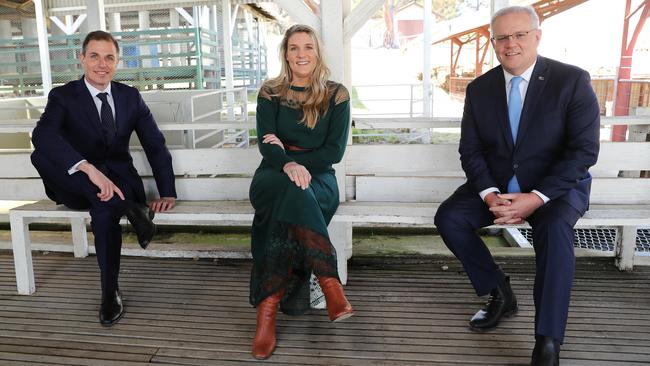
See how the day unfolded.
‘BUY-LOCAL’ PUSH FOR NSW INFRASTRUCTURE PROJECTS
Both major parties are open to cutting “anti-business” payroll tax for regional NSW to give employers a boost after a horror year of drought, fires and coronavirus restrictions.
Speaking at the Daily Telegraph Bush Summit NSW Labor leader Jodi McKay said the state opposition was supportive of tax reform in the current economic environment if it would lead to job creation and enable people to buy a home.
“The two taxes we hear about ... are stamp duty and payroll tax,” she said.
“We’re more than willing to (look at) taxation reform.”
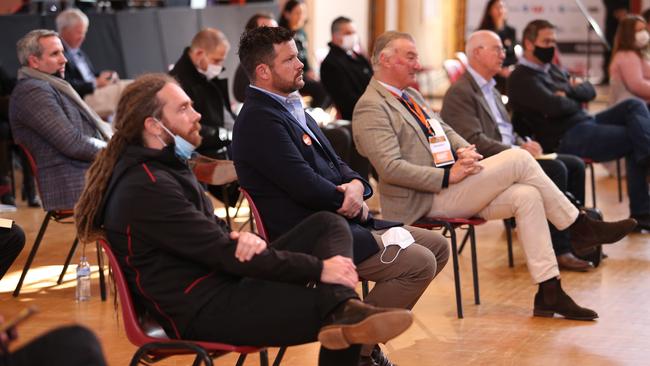
Earlier Premier Gladys Berejiklian also indicated she was open to exploring changes to payroll tax for the regions.
Ms McKay said Labor was also gearing up to launch a massive buy-local policy to ensure government projects used NSW businesses to build infrastructure.
“If you spend $1 million on NSW steel you generate 16 full time jobs, that’s got to count for something,” she said.
“Businesses (bidding for government contracts) would have to present a jobs industry plan.
“We have to make sure that our suppliers are also from NSW and there’s a responsibility they have to generate jobs as well.”
Ms McKay said even if it made projects more expensive, the value brought to the economy was worth it.
She argued many major projects acquired overseas, such as trains, had to be retrofitted in Australia anyway.
“Trains are coming in that don’t fit tracks ... ferries that don’t fit under bridges,” she said.
BUSH GROWTH ‘VITAL’ TO SUCCESS OF CITIES
Labor leader Anthony Albanese said he believes regional Australia has a “bright future” with growth in the bush integral to the success of cities.
“It’s true that I’m from Sydney and I’ve lived in Sydney my whole life, but I’ve also got out and about around the country,” he said.
“One of the things we need to get away from, is it’s not the city or the regions ... growth or jobs in the regions is also good for the capital cities.”
Mr Albanese said the ongoing issues with state border closures showed the National Cabinet was not functioning as intended.
“You can’t have a so-called national cabinet whereby the state premiers and chief ministers sit around and tell each other what they’re doing ... the Prime Minister goes out and announces it ... and at the end people go and do what they want,” he said.
Mr Albanese said in his view the only coronavirus restrictions in Australia should be based on health advice.
“Of course we need some common sense to apply and the advice, there is exemptions granted of course,” he said.
Mr Albanese said the borders had been politicised and it was clear there were communication issues between the NSW and Queensland premiers.
YEAR 12 FORMALS WOULD GIVE ‘MENTAL HEALTH BOOST’
Year 12 formals for regional schools should be allowed to go ahead, the Minister for Regional Youth has said, in a major departure from current government guidelines.
Bronnie Taylor told the Bush Summit regional school-leavers should have their end of year celebrations to provide a mental health boost for Year 12 students who have “had a really tough time this year”.
There has been growing anger in school communities after school formals, dances, and graduations were banned for the rest of term three.
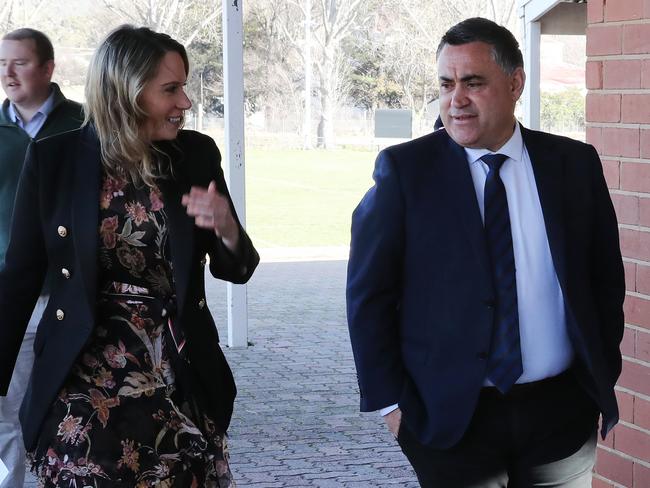
Now for the first time a cabinet minister has called for that ban to be overturned for schools in regional areas “where we’ve been able to do really, really well in terms of the virus”.
“People actually need to see each other and when they see each other they feel better, because they can talk about things,” Ms Taylor said.
The call to allow COVID-safe school formals in the regions also got the backing of Deputy Premier John Barilaro who gave the idea two thumbs up.
It comes after Premier Gladys Berejiklian left the door open to a regional based approach to restrictions.
“If we can look at opportunities throughout the state of dealing with particular regions in particular ways we’re open to that,” she told The Daily Telegraph this week.
Extra-curricular social events like formals were banned after an increase in community COVID transmission within school communities.
The Premier has given hope to school leavers that formals, dances, and graduations may be allowed by term four if community COVID transmission slows.
PREMIER LOOKS AT BUSINESS INCENTIVES FOR THE BUSH
Premier Gladys Berejiklian has left the door open to looking at a call to abolish payroll tax completely in the bush.
The suggestion has been raised at the Bush Summit as a way to encourage businesses to head to the regions to create jobs.
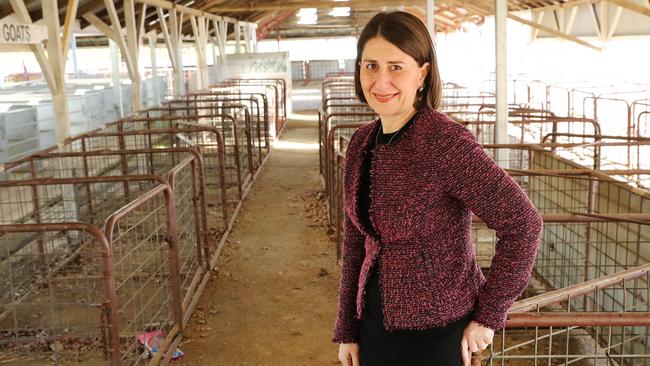
Asked about the push, Ms Berejiklian said: “we’re looking at ways we can incentivise people to set up shop in the bush”.
She said a number of schemes are already encouraging businesses to the regions, but “if there are further incentives we can offer that’s definitely always on the cards”.
While not directly commenting on the push to scrap payroll tax in the bush, the Premier said COVID-19 has taught governments to “always be willing to change tack on things that may have been around for a long time”.
“And I think in order to reach our full potential we have to be open minded as to the best ways to deal with challenges,” she said.
Meanwhile, the Premier said the government “waited until the last minute” before locking down the border to Victoria to limit the damage to border communities.
“Luckily we did it when we did it, because one case that crept in then resulted subsequently in 200 cases across the state from one case,” she said.
“I appreciate the angst that has resulted for those border communities but the alternative conversation today, we’d be having hundreds of people potentially in regional NSW potentially having the virus,” Ms Berejiklian said.
â¦@GladysBâ© and â¦@annacaldwellâ© in discussion at #BushSummit2020 on how we can drive a Bush-led recovery! Jobs, jobs, jobs is the priority! Particularly west of the divide! pic.twitter.com/tIvY6xgpuJ
— Pete Arkle (@pete_arkle) August 28, 2020
PLANNING LAWS ‘STRANGLING’ BUSH DEVELOPMENT
Regional NSW is paying the price for Sydney’s “concrete and bitumen” with biodiversity and planning requirements strangling the development of the bush, Deputy Premier John Barilaro has declared.
Mr Barilaro said in a system where the cost of the Wyangala Dam wall raising project was $695 million but the biodiversity offset cost was an additional $450 million, the price of doing business in the regions would never “stack up”.
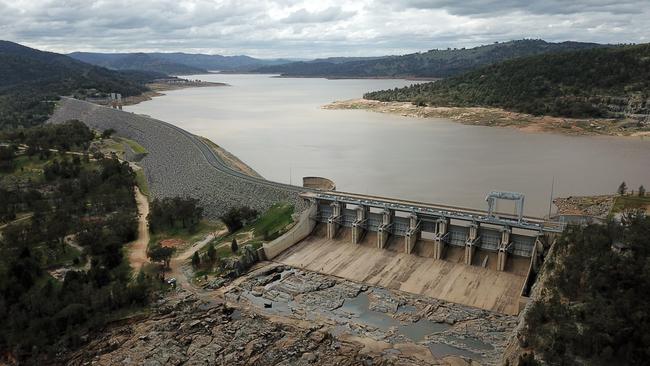
“That’s a discentive and then the Treasurer will say it doesn’t stack up, we don’t do that particular piece of infrastructure is important and we lose the jobs and the opportunity.
“We concrete Sydney and put bitumen everywhere, and yet we pay the price in the bush.”
Speaking at the Daily Telegraph Bush Summit, Mr Barilaro said NSW would never truly have “prosperity” if planning rules weren’t changed to let the regions develop as they “see fit”.
The deputy premier said NSW Environment Minister Matt Kean was specifically a source of resistance for any changes within the government.
“I like (Mr Kean) ... and I’m a professional, but when you’re starting to put certain policy positions and ideology in front of pragmatism, we end up in this mess,” he said.
Mr Barilaro said he felt sorry for people in the state who elected a government to fix things when even he as deputy premier could not.
Regional NSW is paying the price for Sydney’s “concrete and bitumen†with biodiversity and planning requirements strangling the development of the bush, Deputy Premier John Barilaro has declared. #BushSummit2020
— The Daily Telegraph (@dailytelegraph) August 28, 2020
ðŸ“DETAILS: https://t.co/eRZPHk09OG pic.twitter.com/cThrmfovVL
He said regional development was being sacrificed as the “biodiversity offset for Sydney”.
Mr Barilaro said it was hypocritical of people in Sydney to try and shut down development in the bush when “every night they load up their rubbish” on trains to be taken and dumped in the regions.
“But when it comes to the industries we want to see in the bush, we’re lectured to,” he said.
“And the planning decisions are lecturing us.”
Mr Barilaro said there was “so much opportunity” in the regions to be more than agiruculture, small business and tourism and infrastructure would unlock that.
“The truth is the Narrabri Gas Project is we need that as a country not just as a state ... but the eastern suburbs elite will yell us down,” he said.
COAL MINING JOBS ‘GONE IN 20 YEARS’
Coal mining jobs will be gone in 20 years, Mike Cannon-Brookes has said.
In a passionate energy debate at the Bush Summit, the founder of software giant Atlassian said we need to be “honest” about the fact coal miners “don’t have a future” in that industry.
“You’re not all going to lose your jobs tomorrow, but we have to start from a position of honesty,” Mr Cannon-Brookes said.
“Coal jobs are going away in the next 20 years,” he said.
Mr Cannon-Brookes said the country needs to have a conversation about how to transition those workers into other jobs.
“Peabody just laid off half its jobs in the Hunter, and will continue to do so,” he said.
“There are so many fantastic jobs in renewable energy.”
The self-confessed “energy nerd” declared Energy Minister Angus Taylor and his Labor counterpart do not fully understand the economic opportunities of renewable energy.
“We’re not here to talk about emissions or climate, let’s put that aside. We’re here to talk about rural jobs. We’re here to talk about getting the economy back on track,” Mr Cannon-Brookes said.
However Labor’s Joel Fitzgibbon dismissed Mr Cannon-Brookes as a “dreamer”.
Mr Fitzgibbon said Peabody has laid off workers because of a slower market weakened by COVID, not because coal demand was falling off.
“I have a good track record of getting shit done alongside that dreaming and I’ll continue to do that,” Mr Cannon-Brookes responded.
Meanwhile, Mr Fitzgibbon accused the energy minister of not having any “goal” or “ambition” to meet lower emissions targets.
RURAL CHAMPION HONOURED
Online entrepreneur and Birdsnest founder Jane Cay has become the first recipient of the Daily Telegraph’s Bush Telegraph Award.
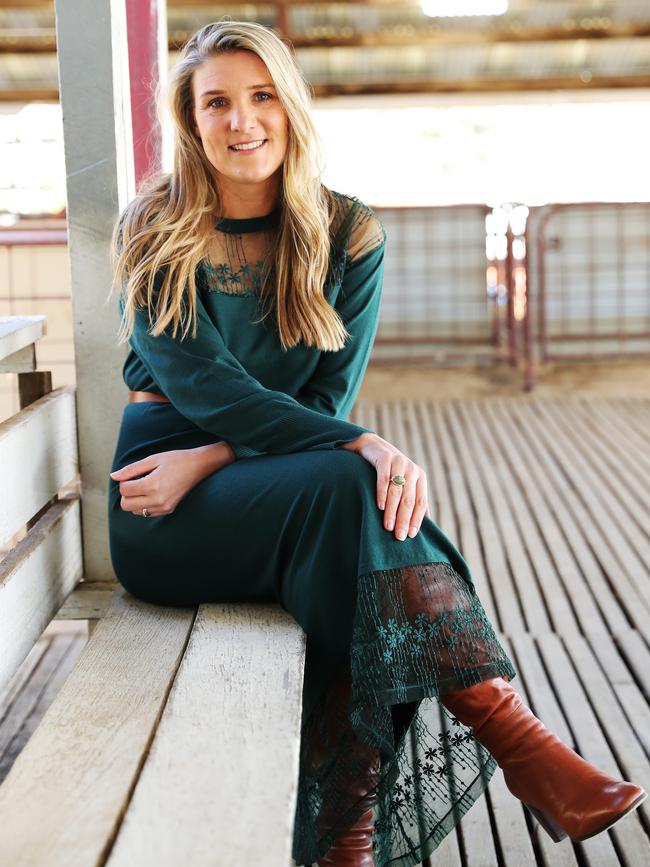
Delivered in partnership with Westpac, the awards shine a light on rural champions like Ms Cay.
The inaugural Bush Telegraph Award winner created an online fashion business that employs over 140 locals in a town of just 6,500 people.
Ms Cay took her country town retail store online in 2008. Today, the business has grown 30 times bigger.
“The bush has given me so much more than I could ever give back,” Ms Cay said when accepting the award.
She asked for any money that comes as part of the award to be donated to the Country Education Foundation, a not for profit organisation supporting rural kids get to university.
PM ‘DISAPPOINTED’ WITH ACTIONS AGAINST AUSSIE EXPORTS
Prime Minister Scott Morrison has expressed his disappointment at the Bush Summit after China banned beef from another Australian abattoir.
The John Dee abattoir is now the fifth that has been prevented from selling to China, amid deteriorating relations between Beijing and Canberra.
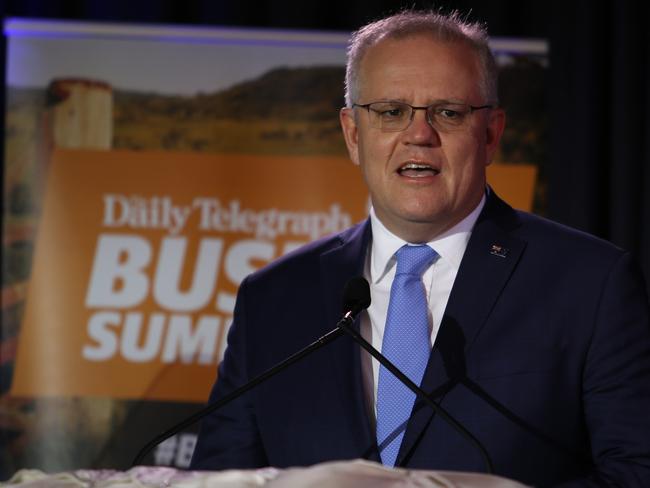
Mr Morrison said his government is “disappointed” with the actions against Australian exports, with barley and wine also targeted.
“We’ll work with industry on those issues and address the facts of each case,” he told the Bush Summit.
“Our high-quality beef, lamb, seafood and wine exports to China have grown in recent years for a very simple reason: they’re good. Chinese consumers like them,” he said.
REGIONAL AUSTRALIA ‘READY AND WAITING’
Forty-thousand well paid jobs are available right now in regional Australia, The Daily Telegraph’s Bush Summit has heard.
Regional Australia Institute CEO Liz Ritchie has told the Summit that the bush is “ready and waiting” for people to make a tree change to embrace country life.
“Right now there are 40,000 job vacancies in regional Australia,” she said.
Ms Ritchie’s think tank is devoted to issues concerning regional Australia.
“We want people to know that they have a choice, they have alternatives, and that regional Australia is ready and waiting,” she said.
Ms Ritchie’s think tank is devoted to issues concerning regional Australia.
Regional Australia Institute CEO Liz Ritchie has told the Summit that the bush is “ready and waiting†for people to make a tree change to embrace country life. #bushsummit2020
— The Daily Telegraph (@dailytelegraph) August 28, 2020
ðŸ“DETAILS: https://t.co/eRZPHk09OG pic.twitter.com/1jB8P6M21A
“We want people to know that they have a choice, they have alternatives, and that regional Australia is ready and waiting,” she said.
DECENTRALISATION A ‘FIGHT WORTH HAVING’
The boom in remote work is the “silver lining” of the devastating coronavirus pandemic proving the regions are a viable place to do business, the Bush Summit has heard.
Jane Cay is chief executive of online fashion retailer Birdnest that employs 140 locals in Cooma and sells to the world and said COVID-19 had given Australians the “freedom” to “redefine how we live and work”.
“To have a seat at the table yes we need those basic things like high speed internet, and mobile coverage ... but it’s also a cultural shift to promote remote working,” she said.
Ms Cay said it would be a “fight” to bring everyone on board with decentralisation but one “worth having”.
“The opportunity is really to come and start a business in the bush, to find the talent that’s out here ... in the regions.”
Deputy Prime Minister Michael McCormack said there were “so many opportunities” in regional NSW.
“You can be in a zoom meeting in Cooma that might as well be in a board meeting in Sydney,” he said.
‘MASSIVE OPPORTUNITIES’ FOR BUSH AMID COVID CRISIS
Daily Telegraph Editor Ben English has told the Bush Summit that the coronavirus pandemic presents massive opportunities for the regions.
Addressing the challenges since last year’s Summit, Mr English reflected on crushing drought and horror bushfires that have impacted the bush.
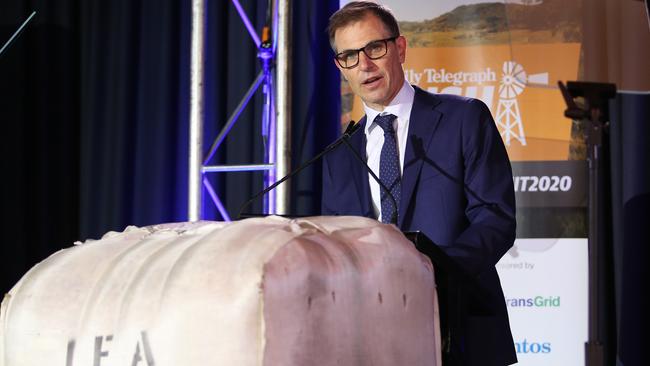
Despite the global COVID pandemic crippling the cities, it has presented opportunities for the regions, with a “spike in tree changers” capitalising on working from home.
The second Bush Summit presents an “incredible opportunity” to capitalise on success from last year, he said, including infrastructure spending and Right To Farm legislation.
However issues like mobile black spots and minimum standards for country towns still need to be addressed, Mr English said.
POLITICIANS SHOULD PLAN FOR DECADES AHEAD: BARILARO
Politicians should plan for the “decades ahead” not just “the next election cycle,” Deputy Premier John Barilaro has told The Daily Telegraph’s Bush Summit.
The Monaro state MP welcomed attendees to Cooma, the site of the historic Snowy Hydro scheme.
The project is a “piece of engineering infrastructure that we should be proud of,” that was created “at a time when this country believed we could build things,” he said.
With construction on Snowy 2.0 now underway, Mr Barilaro said politicians should be preparing for “Snowy 3.0, and Snowy 4.0”.
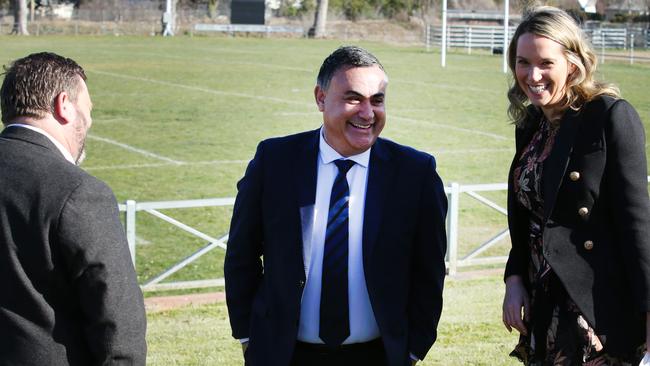
“Why are we only planning for the next election cycle and not for the decades ahead?”
He said the country should invest in infrastructure that “may take decades to complete but will benefit the generations ahead”.
Opening the Bush Summit, Mr Barilaro said the regions lead the way out of the COVID pandemic.
“Agriculture in regional and rural NSW will be fundamental to the recovery of the economy and NSW will lead the way,” Mr Barilaro said.
YOUNG CITY SLICKERS QUITTING THE BIG SMOKE
Almost one third of young Sydneysiders would consider moving to the bush within the next three years according to new research conducted ahead of today’s The Daily Telegraph Bush Summit.
Prime Minister Scott Morrison and NSW Premier Gladys Berejiklian are heading a stellar list of political, business and entrepreneurial leaders travelling to Cooma in the Snowy Mountains to talk about jobs, energy and prosperity in regional NSW.
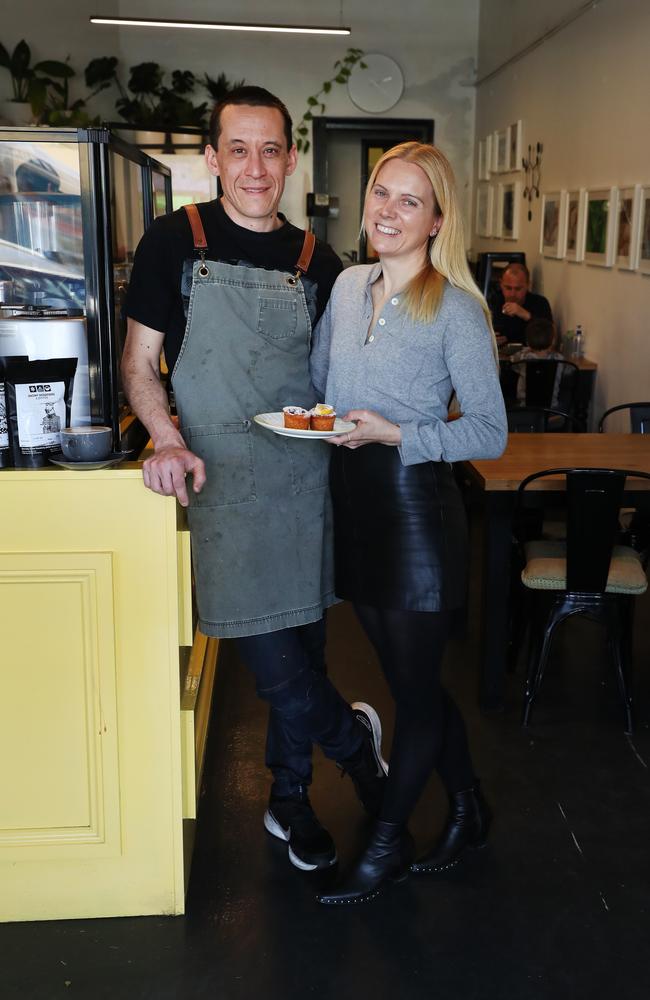
Mr Morrison will announce the establishment of a Regional Recovery Officer network across the country to be the government’s “boots on the ground” in communities impacted by drought.
The officers will be “listening, reporting (and) working across government and across the community to develop solutions,” Mr Morrison will say.
Research by Newgate Communications found that 30 per cent of Sydneysiders aged 18-34 are willing to make the move to regional NSW within three years, a figure that rises to 41 per cent among city parents with children under 12 — with a lower cost of living the main drawcard.
The tree changer numbers climb even further for those considering a move within 10 years — up to 39 per cent of young people.
“COVID has demonstrated that, provided you have the IT, you can live and work anywhere and why wouldn’t you want to consider living in a country area with lower cost of living and a great lifestyle,” Brian Tyson from Newgate Communications said.
“It supports the theme of this summit which is very positive. The bush really can thrive from the recovery from COVID.”
Tree changers Kate and Jeremy McDiven have never regretted moving from Woollahra to the Snowy Mountains to bring up their two sons.
“It is just a better fit for our family than the life I see my friends living in Sydney,” Ms McDiven said.
Five years on and they have bought a cafe in Cooma while Ms McDiven works as a buyer for Cooma’s online fashion dynamo Birdsnest.
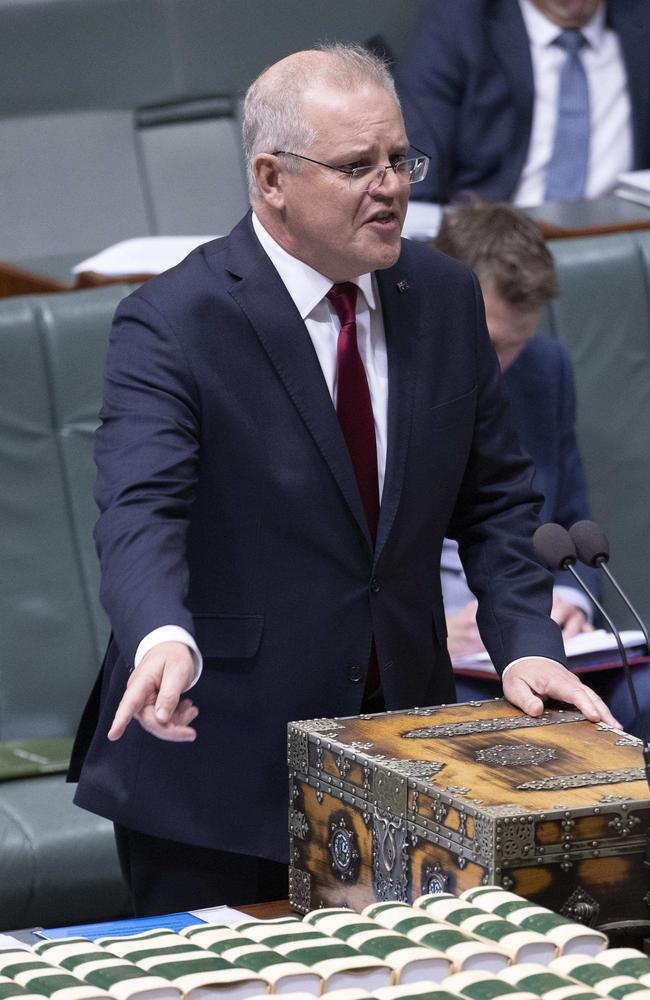
“It is amazing to have a big job in fashion while living here,” she said.
At the summit the PM will also address the negative impact of domestic border restrictions on regional communities.
“Where permits are required, it is reasonable for Australians to expect that their applications will be dealt with quickly and that there is an appeal process,” he will say.
“The next critical step is to establish principles to ease restrictions and open borders so that we can all go about our lives … until we have a vaccine.”
Mr Morrison will recommit the government to its Ag2030 plan to support agriculture, fisheries and forestry which has been delayed by the pandemic.
“We have not stopped working towards achieving the goal,” he will say.
LOOKING TO LEAVE RAT RACE BEHIND
Nora Anderson-Dieppe and her husband Ed are hoping to move from their home on Sydney’s north shore to Jindabyne in the state’s alpine region.
The couple, who own their own residential interior and architecture business, are currently looking for an affordable block of land to buy and build on.
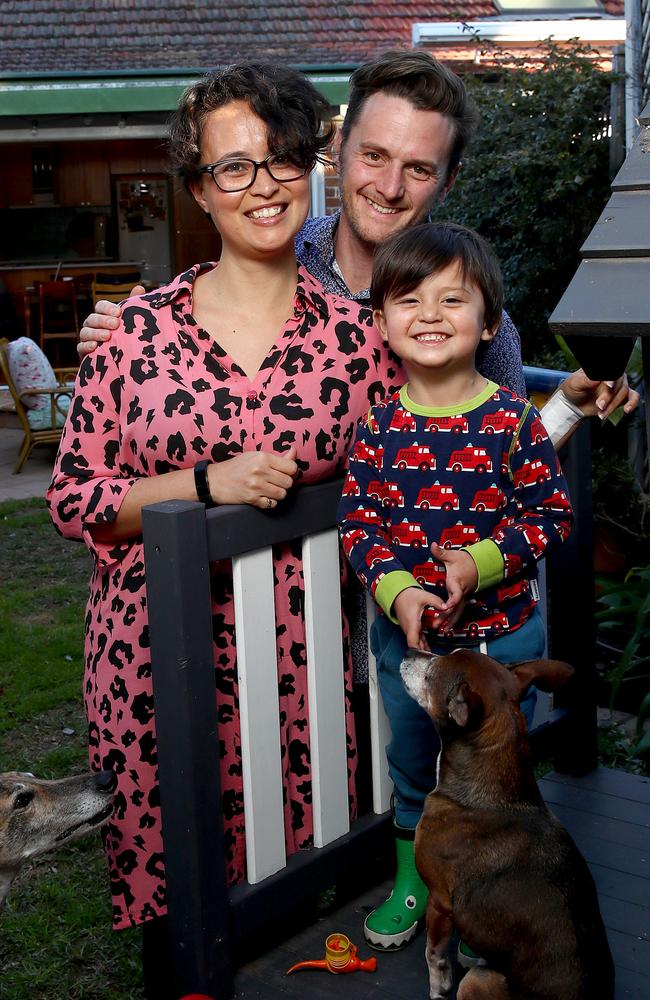
“We are looking to move for a number of reasons, more affordable to buy land and being an architect and interior designer we want to build from scratch,” Mrs Anderson-Dieppe said.
“Buying the size and outlook we want is totally out of our price range.”
The couple, who have a two-year-old son, Flint, say they are not surprised so many people want to move to the bush.
“I think there has been more and more pressure for us to be working on a healthy work life balance in the past five years or so,” she said.
â¦@GladysBâ© and â¦@annacaldwellâ© in discussion at #BushSummit2020 on how we can drive a Bush-led recovery! Jobs, jobs, jobs is the priority! Particularly west of the divide! pic.twitter.com/tIvY6xgpuJ
— Pete Arkle (@pete_arkle) August 28, 2020
